Abstract
OBJECTIVE. To determine whether ambulance crew triage trauma patients appropriately. DESIGN. A retrospective descriptive study. SETTINGS. Cornwall County Ambulance Service. VARIABLES STUDIED. On-scene times, injury severity, establishment of intravenous infusion and time from scene to A&E department. SUBJECTS. Patients with compound fracture of the lower limb taken to Truro Accident and Emergency department. OUTCOME MEASURES. Ambulance service on-scene times and mission times. RESULTS. Ambulance crew do not appear to be triaging patients appropriately. Excessive time is being spent on pre-hospital stabilization. Delivery of patients to a casualty department is delayed. CONCLUSION. At present the activities of paramedics are poorly supervised, and pre-hospital management by paramedics may be jeopardizing patient care.
Full text
PDF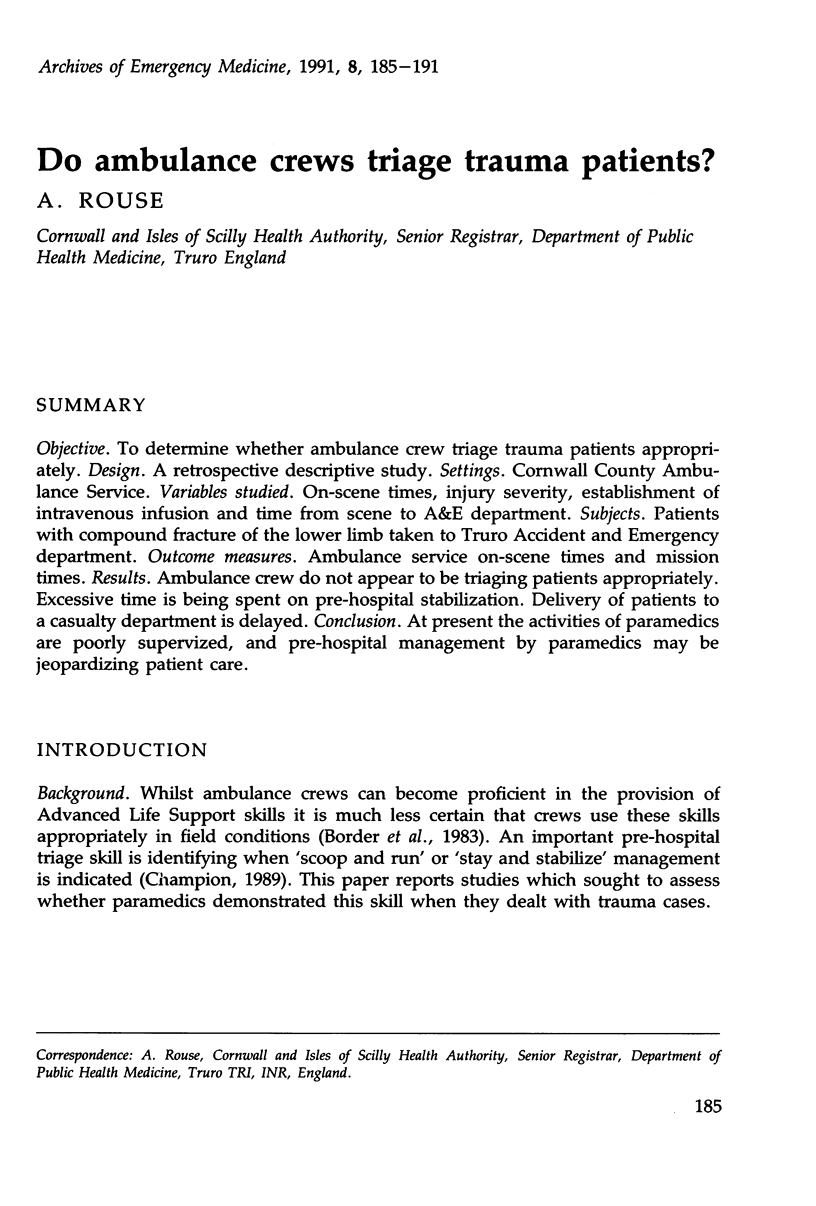
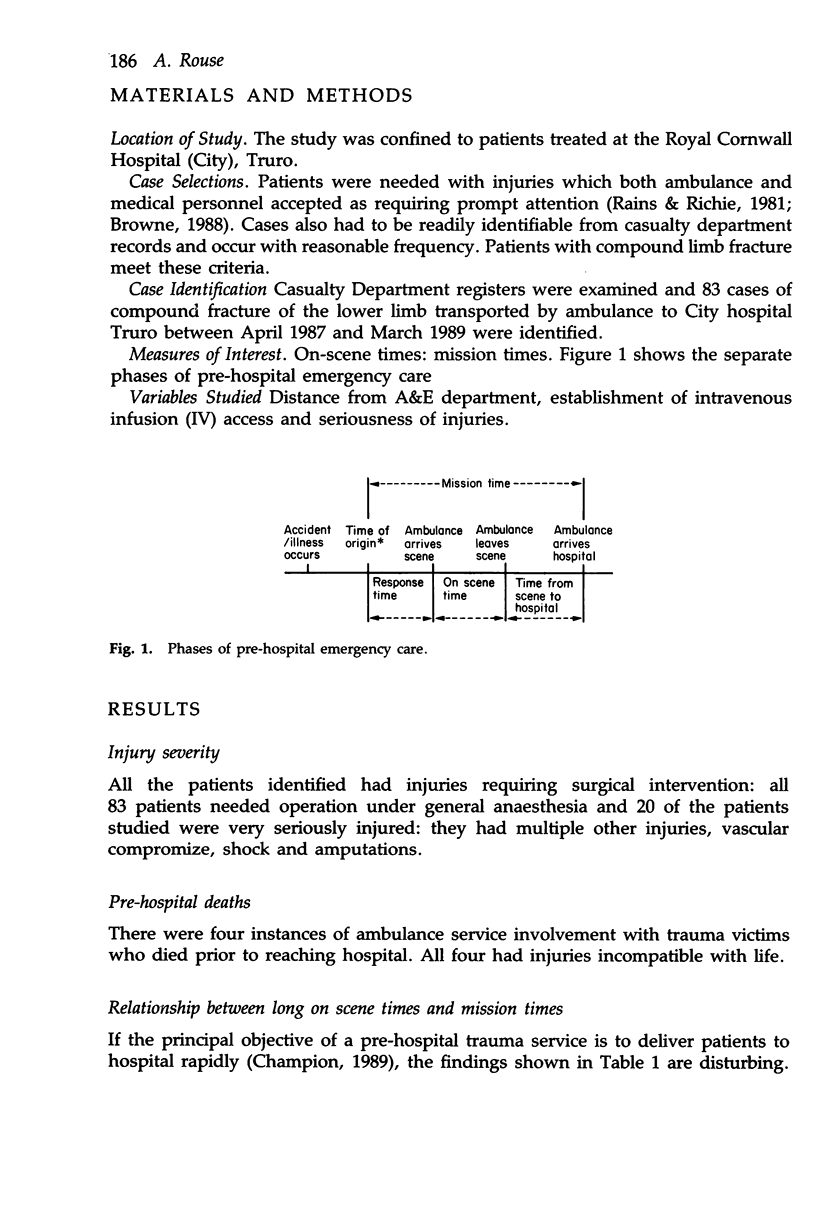
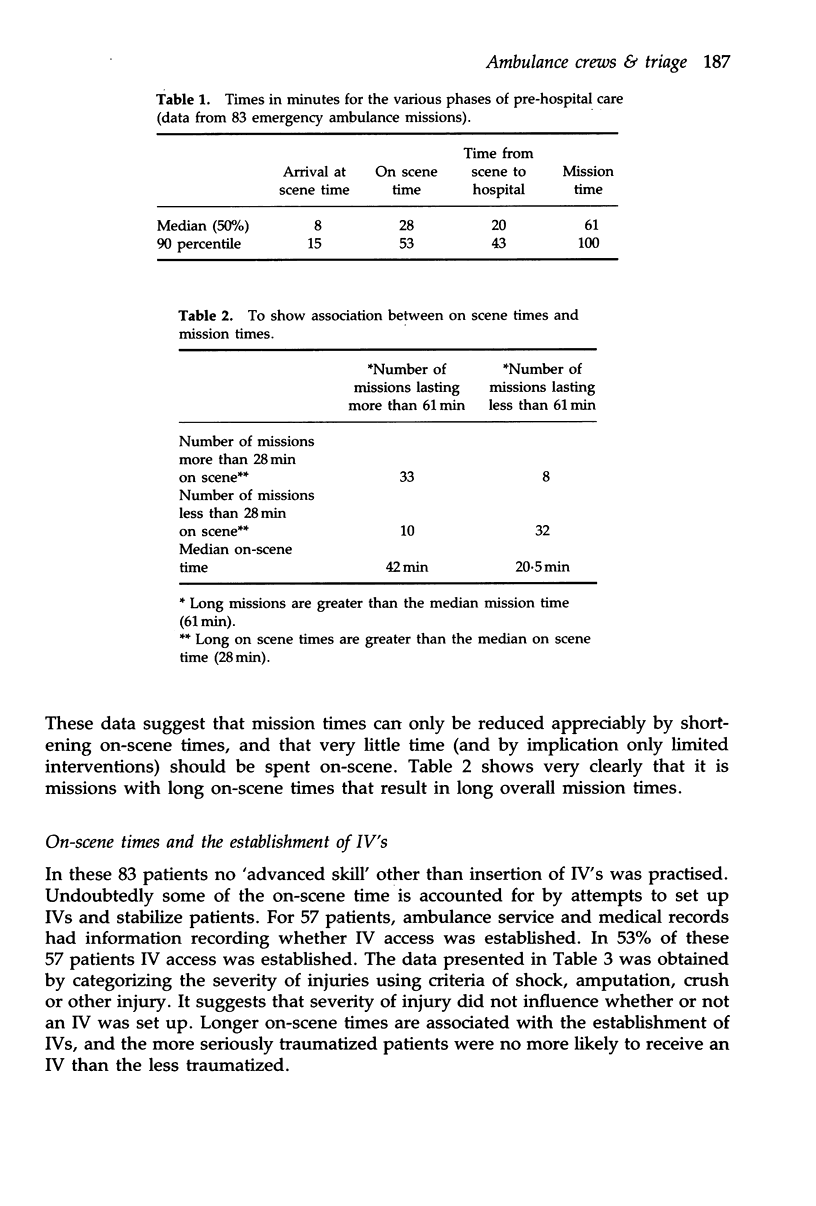
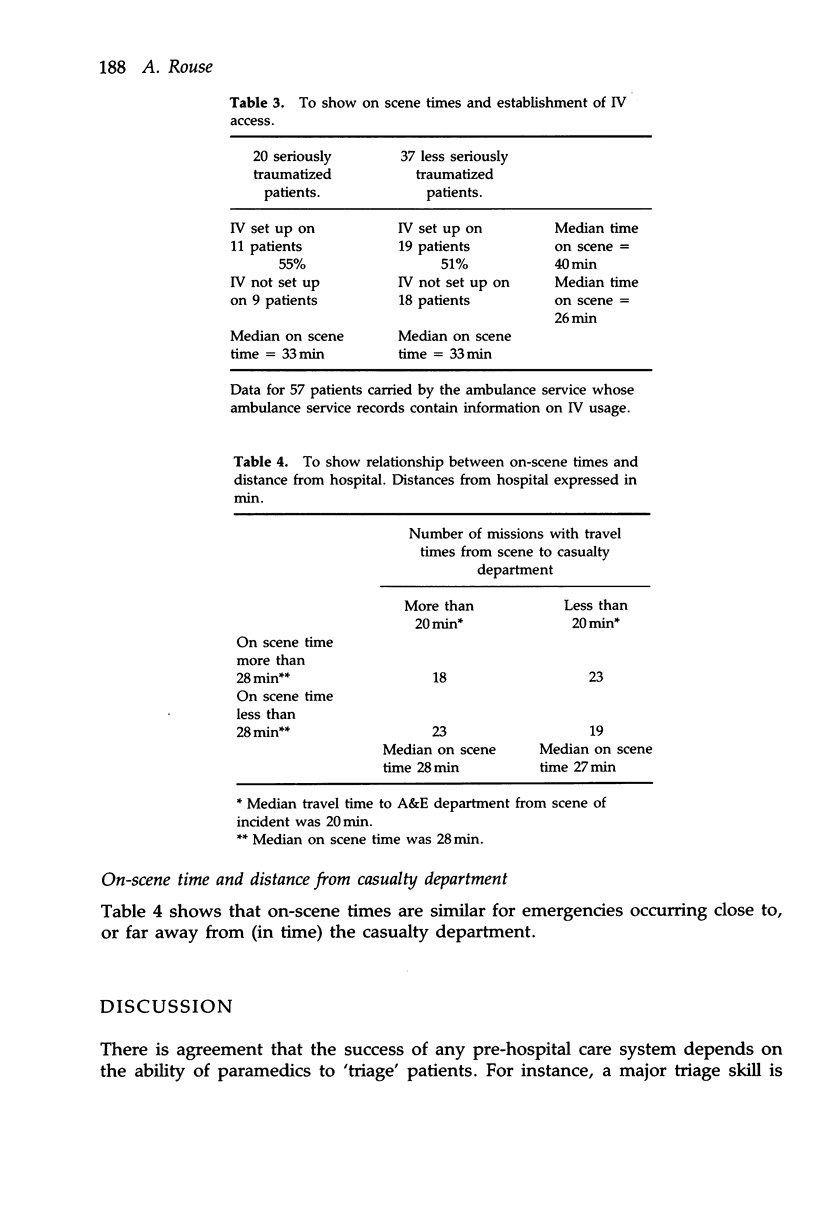
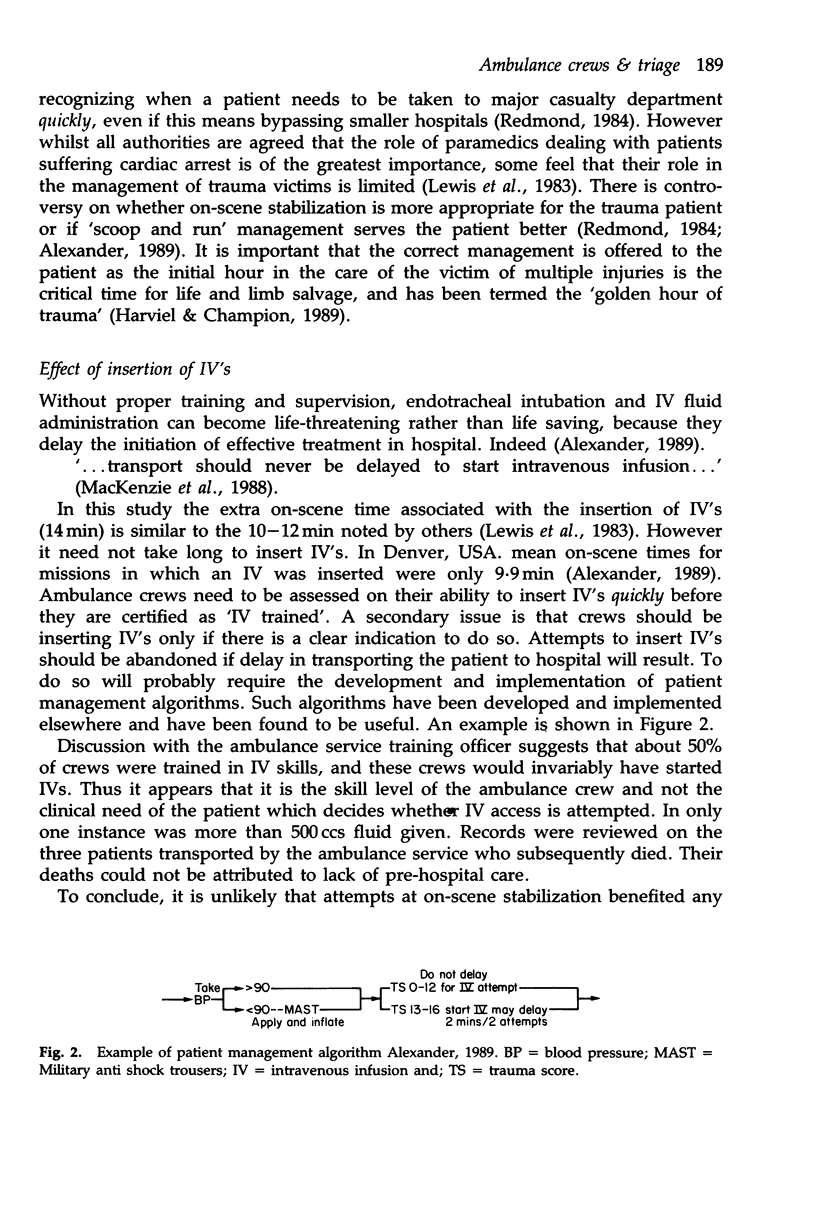
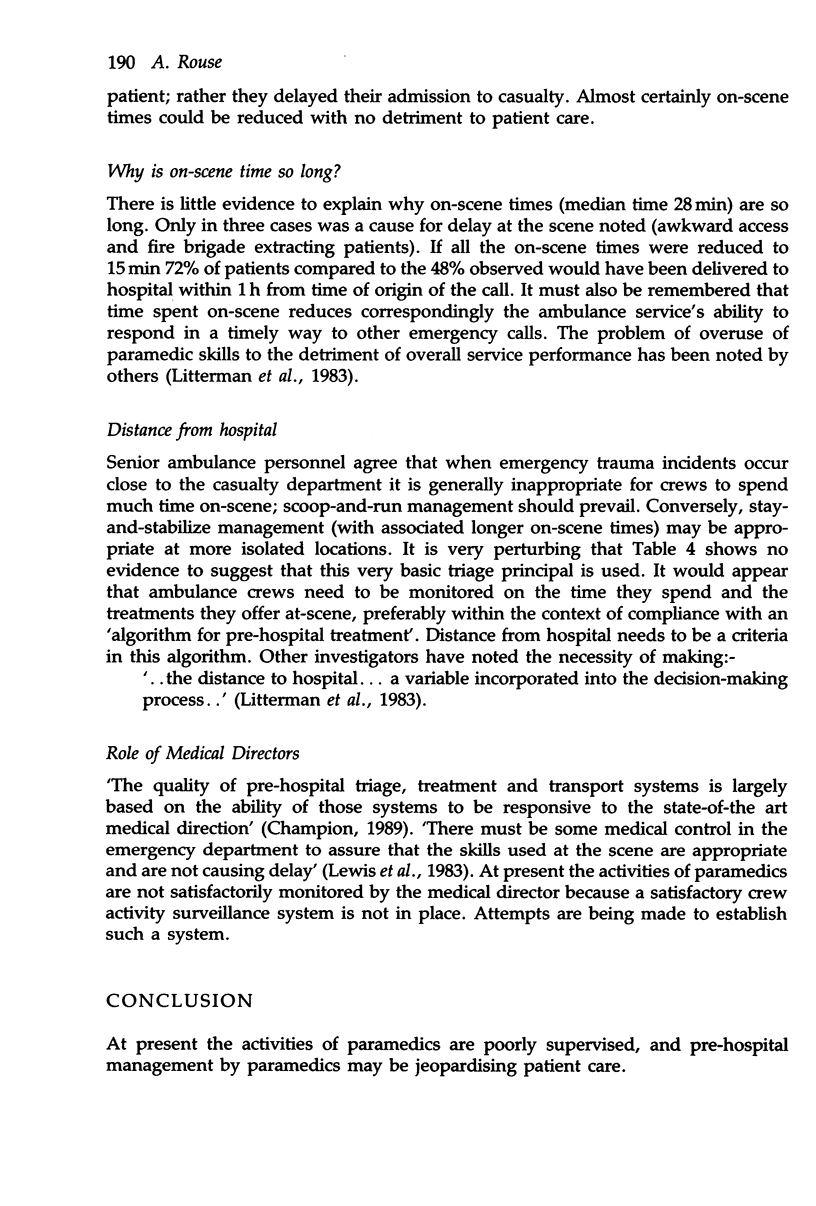
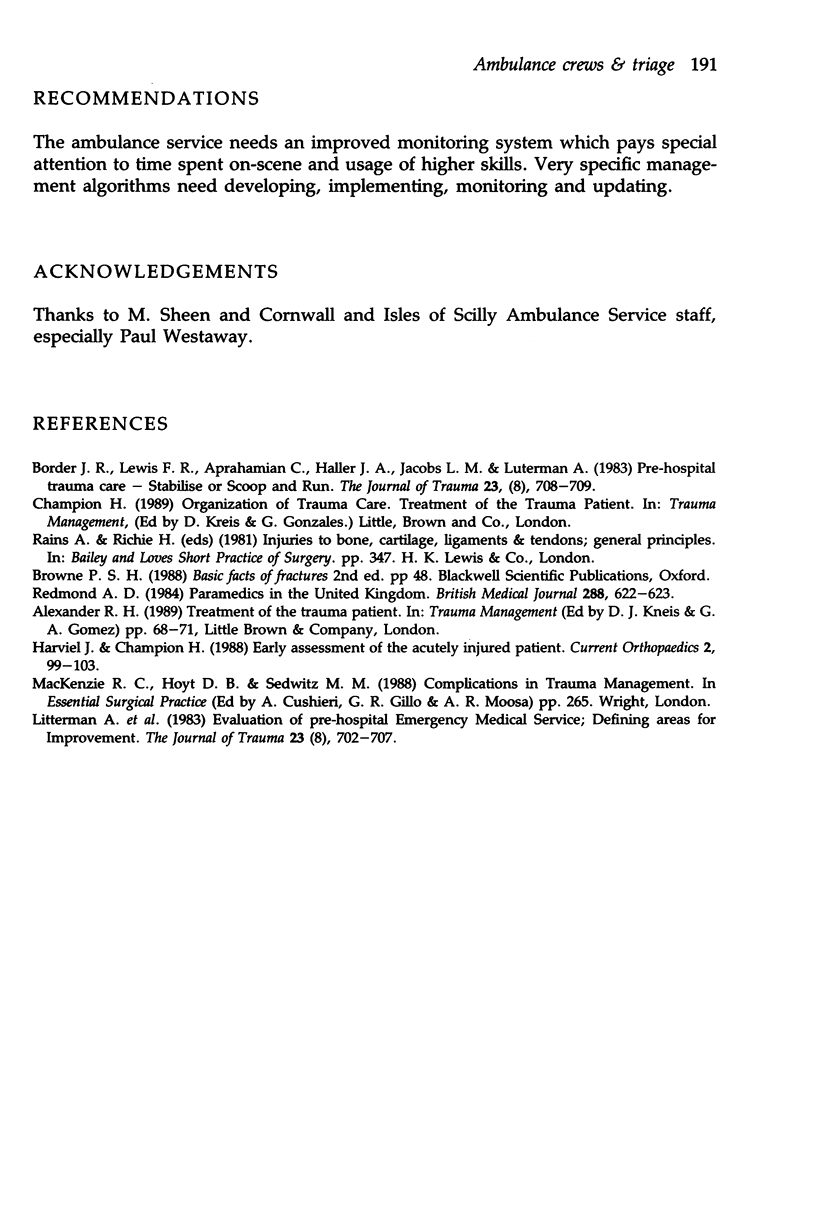
Selected References
These references are in PubMed. This may not be the complete list of references from this article.
- Border J. R., Lewis F. R., Aprahamian C., Haller J. A., Jacobs L. M., Luterman A. Panel: prehospital trauma care--stabilize or scoop and run. J Trauma. 1983 Aug;23(8):708–711. [PubMed] [Google Scholar]
- Luterman A., Ramenofsky M., Berryman C., Talley M. A., Curreri P. W. Evaluation of prehospital emergency medical service (EMS): defining areas for improvement. J Trauma. 1983 Aug;23(8):702–707. doi: 10.1097/00005373-198308000-00004. [DOI] [PubMed] [Google Scholar]


